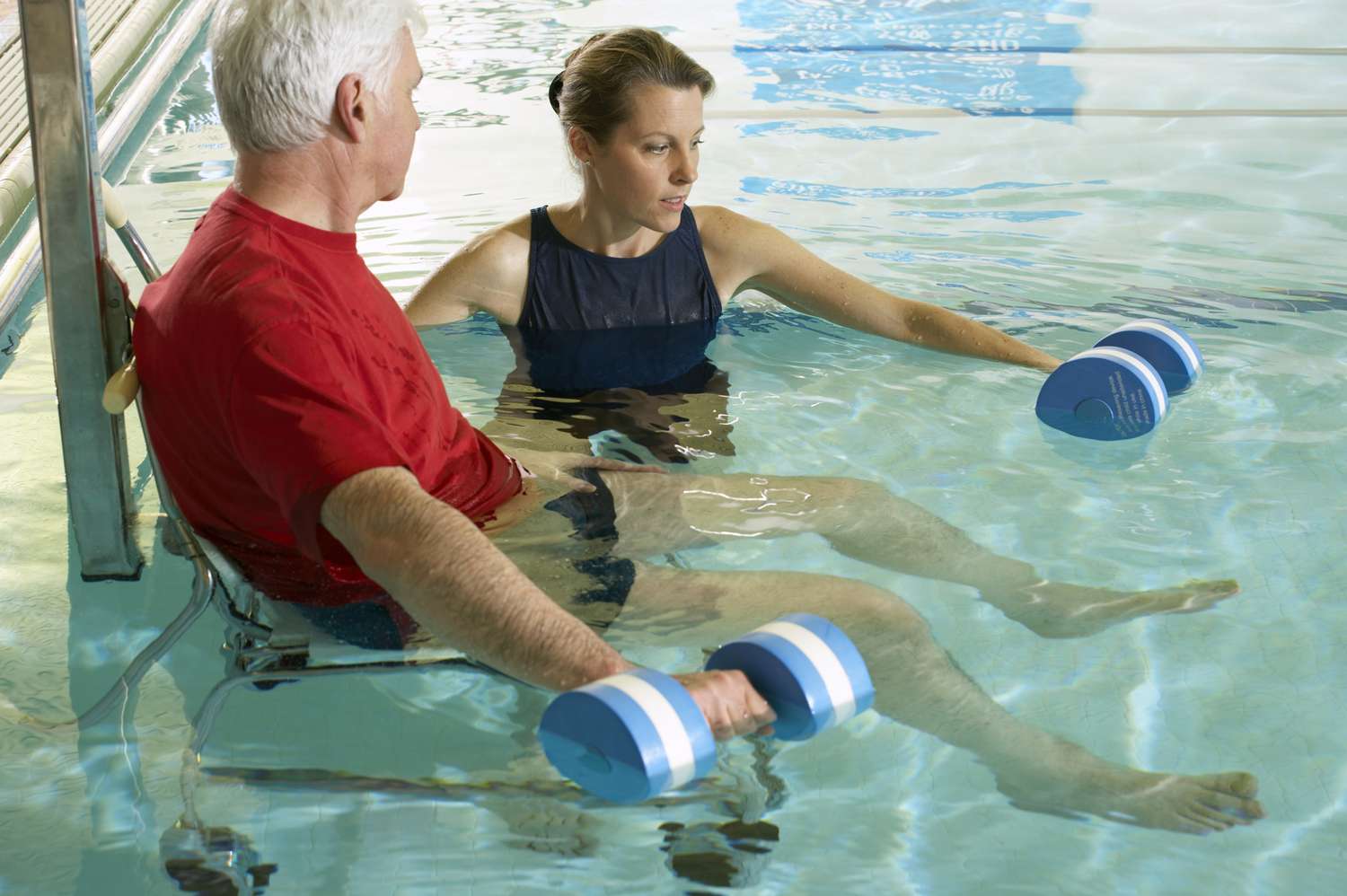
Water therapy, also known as hydrotherapy, has been around for centuries. But what makes it so special? Water therapy involves using water in various forms and temperatures to promote health and well-being. From ancient Roman baths to modern-day spa treatments, people have always turned to water for healing. Hydrotherapy can help with pain relief, improve circulation, and even boost your mood. Whether it's a warm bath, a cold plunge, or a soothing shower, water has unique properties that can benefit the body and mind. Ready to learn more? Here are 30 fascinating facts about water therapy that might surprise you!
Key Takeaways:
- Water cure, also known as hydrotherapy, has been used for centuries to relieve pain, improve circulation, reduce stress, and enhance immunity. It's a natural and effective way to promote overall health and well-being.
- Hydrotherapy is not just for relaxation; it offers real medical benefits. From pain relief to mental health support, this ancient practice has stood the test of time and continues to be a valuable part of modern medicine.
What is Water Cure (Therapy)?
Water cure, also known as hydrotherapy, involves using water for pain relief and treatment. This method has been around for centuries and continues to be popular due to its natural approach to healing.
-
Ancient Origins: Hydrotherapy dates back to ancient civilizations like Egypt, Greece, and Rome. They used hot springs and baths for relaxation and healing.
-
Father of Hydrotherapy: Vincent Priessnitz, a 19th-century farmer, is considered the father of modern hydrotherapy. He popularized the use of cold water treatments.
-
Different Forms: Hydrotherapy includes various treatments like baths, saunas, steam rooms, and compresses. Each method serves a unique purpose.
Benefits of Water Cure
Hydrotherapy offers numerous health benefits. It can improve physical and mental well-being.
-
Pain Relief: Warm water can soothe sore muscles and joints, providing relief from conditions like arthritis.
-
Improved Circulation: Alternating between hot and cold water can boost blood flow, aiding in faster recovery from injuries.
-
Stress Reduction: Immersing in warm water can relax the body and mind, reducing stress and anxiety levels.
-
Detoxification: Sweating in saunas and steam rooms helps eliminate toxins from the body.
-
Enhanced Immunity: Regular hydrotherapy sessions can strengthen the immune system, making the body more resistant to illnesses.
Techniques in Hydrotherapy
Different techniques are used in hydrotherapy to target specific health issues. Each technique has its own set of benefits.
-
Contrast Baths: Alternating between hot and cold water can reduce inflammation and improve circulation.
-
Watsu: A form of aquatic bodywork that combines massage, joint mobilization, and stretching in warm water.
-
Kneipp Therapy: Developed by Sebastian Kneipp, this method uses cold water to stimulate the body's natural healing processes.
-
Balneotherapy: Involves bathing in mineral-rich waters, often found in natural hot springs, to treat skin conditions and arthritis.
Hydrotherapy in Modern Medicine
Hydrotherapy has found its place in modern medical practices. It complements traditional treatments and offers a holistic approach to healing.
-
Rehabilitation: Used in physical therapy to help patients recover from surgeries and injuries.
-
Chronic Pain Management: Provides relief for chronic pain conditions like fibromyalgia and lower back pain.
-
Mental Health: Hydrotherapy can alleviate symptoms of depression and anxiety, promoting overall mental well-being.
-
Pregnancy: Pregnant women can benefit from hydrotherapy to relieve back pain and improve sleep quality.
Water Cure at Home
You don't need to visit a spa to enjoy the benefits of hydrotherapy. Simple techniques can be practiced at home.
-
Epsom Salt Baths: Adding Epsom salts to a warm bath can relax muscles and reduce inflammation.
-
Cold Showers: Taking cold showers can invigorate the body, improve circulation, and boost mood.
-
Foot Baths: Soaking feet in warm water can relieve stress and improve sleep.
-
Steam Inhalation: Inhaling steam can clear nasal passages and improve respiratory health.
Interesting Facts about Water Cure
Hydrotherapy is not just about health benefits. It has some fascinating aspects that make it unique.
-
Hydrotherapy Pools: Specially designed pools with adjustable water temperatures and jets are used for therapeutic purposes.
-
Animal Hydrotherapy: Pets, especially dogs, can benefit from hydrotherapy for conditions like arthritis and post-surgery recovery.
-
Historical Use: Famous figures like Julius Caesar and Napoleon Bonaparte were known to use hydrotherapy for relaxation and healing.
-
Cultural Practices: In Japan, onsen (hot springs) are a popular form of hydrotherapy, believed to have healing properties.
-
Hydrotherapy in Sports: Athletes use hydrotherapy to recover from intense training and injuries.
Myths and Misconceptions
Despite its benefits, hydrotherapy is surrounded by myths and misconceptions. Let's clear some of them.
-
Only for the Rich: Hydrotherapy is accessible to everyone, not just the wealthy. Simple techniques can be practiced at home.
-
Cures All Diseases: While beneficial, hydrotherapy is not a cure-all. It should complement other treatments.
-
Dangerous: When done correctly, hydrotherapy is safe. Always consult a healthcare provider before starting any new treatment.
-
Only for Relaxation: Hydrotherapy offers more than just relaxation. It has proven medical benefits.
-
New Age Fad: Hydrotherapy has ancient roots and has been used for centuries, proving its effectiveness over time.
The Power of Water Therapy
Water therapy offers numerous benefits. It can improve circulation, reduce stress, and aid in detoxification. Many people find relief from chronic pain and inflammation through hydrotherapy. Simple practices like drinking water first thing in the morning or taking regular baths can make a big difference.
Incorporating water therapy into your routine doesn't require expensive equipment or a lot of time. Even small changes can lead to noticeable improvements in your overall well-being. Whether you're dealing with specific health issues or just looking to boost your general health, water therapy is worth considering.
Remember, consistency is key. Make water therapy a regular part of your life to reap its full benefits. Stay hydrated, take those relaxing baths, and enjoy the natural healing properties of water. Your body will thank you!
Frequently Asked Questions
Was this page helpful?
Our commitment to delivering trustworthy and engaging content is at the heart of what we do. Each fact on our site is contributed by real users like you, bringing a wealth of diverse insights and information. To ensure the highest standards of accuracy and reliability, our dedicated editors meticulously review each submission. This process guarantees that the facts we share are not only fascinating but also credible. Trust in our commitment to quality and authenticity as you explore and learn with us.


